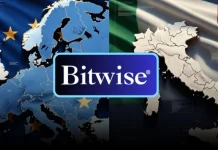
- Telcoin receives final approval for its U.S. digital asset bank charter.
- Nebraska regulators authorize Telcoin to connect bank accounts to stablecoins.
- New charter positions Telcoin to issue regulated, on-chain Digital Cash.
Telcoin has received final approval from the Nebraska Department of Banking and Finance to launch the Telcoin Digital Asset Bank, becoming the first fully supervised Digital Asset Depository Institution in the United States. The authorization enables Telcoin to connect insured U.S. bank accounts directly to regulated Digital Cash stablecoins, creating a compliant link between traditional banking infrastructure and on-chain payment systems.
This approval is based on a multi-year licensing procedure initiated under the Digital Asset Depository Institution Act of Nebraska. It provides the firm with the right to issue bank-regulated Digital Cash. The act subjects the stablecoin issuer to the same supervisory environment that applies to insured depository institutions. This is because the charter requires oversight, audits, and full-reserve statements.
With the approval now finalized, the firm can operationalize its model of connecting U.S. bank accounts to blockchain-issued stablecoins. The company’s initial offering centers on eUSD. The stablecoin is fully backed by U.S. bank deposits and short-term treasuries. eUSD will be issued directly by the Telcoin Digital Asset Bank rather than through an offshore entity or unregulated issuer.
Telcoin Raises Capital to Meet Regulatory Requirements
Two weeks prior to receiving final approval, the firm completed a $25 million pre-Series A funding round to capitalize the digital asset bank. The raise included community banking investors such as Matt Maser and Tom Kaiman. The campaign helped Telcoin satisfy the capital requirements attached to its charter. The funds support the bank’s launch, infrastructure development, and compliance architecture.
Telcoin Funding Announcement | Source: X
Its services are designed for global availability. It spans mobile-based payments, cross-border remittances, merchant transactions, and self-custodial digital asset accounts. The bank charter gives Telcoin the regulatory foundation needed to scale these services within the U.S. financial system.
A Milestone for U.S. Regulation on Stablecoins
The timing comes as the U.S. upholds its GENIUS Act stablecoin policy. The law introduces nationwide rules for reserve composition, issuer eligibility, AML requirements, and auditing standards. The firm has now become one of the earliest entities approved under a state-level framework compatible with this federal model.
Under the act, only insured depository institutions or approved nonbank financial institutions may issue stablecoins backed by U.S. dollar reserves. eUSD’s structure follows these requirements. It uses a ratio of 1:1 in its reserves held in regulated accounts while undergoing routine third-party audits.
This framework also echoes other international regulatory directions. Europe’s MiCA rules permit only licensed e-money institutions to issue euro-linked tokens. On the other hand, Hong Kong’s Stablecoin Ordinance requires Reserve Pool parity and ongoing audits. The Nebraska charter perfectly places the firm within the constraints of the global shift in reserve-backed digital asset regulation.
Stablecoin adoption has seen quite some changes over the past year. The adoption has seen transaction volumes surpass Visa and Mastercard combined in 2024. As usage rises, regulators have emphasized the need for controlled issuance and transparent backing. The Nebraska charter satisfies those criteria by requiring the stablecoin issuer to maintain verifiable reserves, comply with the Bank Secrecy Act, and provide continuous reporting.
The approval gives U.S. businesses and consumers access to a compliant digital cash instrument built for payments, settlements, and cross-border flows. It also enables interoperability with decentralized financial protocols. This is solely owed to the fact that Nebraska’s Digital Asset Depository Institution Act expressly permits connections to blockchain-based platforms.




